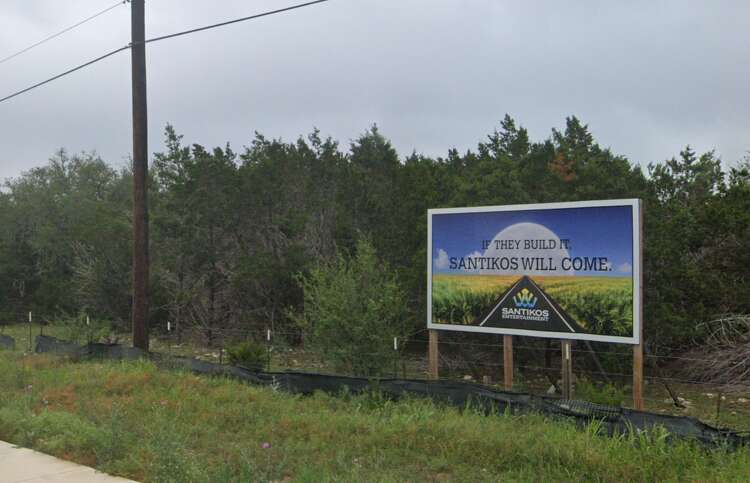
A New Era for San Antonio: The Trinity Oaks Project Unveiled
A groundbreaking project is taking shape in San Antonio, and it's one that has been in the works for nearly six years. Spearheaded by Santikos Entertainment, a well-known theater chain and real estate company based in the city, the development has kept many details under wraps until recently. For residents on the Far Northside, the presence of an ominous sign off U.S. 281 N. and Trinity Park has been a familiar sight since early 2020. The sign read, "If they build it, Santikos will come," sparking curiosity and speculation about what was to come.
The initial buzz around the project led to rumors about potential new attractions such as a theater, laser tag center, or even a bowling venue. However, when CEO Tim Handren announced his retirement in 2024 after leading the company for six years, questions arose about the future of the project. Despite this, Handren reassured residents last summer that the development was still moving forward. He mentioned that the project, named Trinity Oaks, was on track to have its pad sites available for interested tenants.
One of the most exciting aspects of the project, according to Handren, was the potential for a new theater. This promise has now been confirmed by the company's new CEO, Blake Hastings, who shared details with the San Antonio Business Journal. Hastings revealed that investors are pouring approximately $30 million into the project, which includes retail, housing, and dining options.
The Vision for Trinity Oaks
A property flyer for Trinity Oaks highlights the scale of the development. The proposed theater would occupy 60,120 square feet, anchoring a massive 33-acre land. Inside the theater, Santikos Chief Operating Officer Rob Lehman described plans for a sports bar with stadium seating, a gaming area, and bowling lanes. The facility is expected to feature roughly 10 to 12 screens, including two AVX premium large format screens.
Construction on the theater is scheduled to be completed by late 2027. Additionally, the site includes seven pad sites, as shown in a YouTube video advertising the land to tenants. One restaurant, Willie's Ice House, is already labeled as "in contract," supporting Hastings' claim about a significant South Texas presence on the property.
Expanding the Development
To the left of the eatery, a pad site is reserved for a hotel and a 14.40-acre multi-family housing complex. This aligns with Hastings’ mention of considering a multifamily development at a later stage. Should the site plan unfold as intended, the plaza would also include an 8,070 square-foot retail business, enhancing its appeal as a popular entertainment destination.
Hastings noted that Trinity Oaks pays tribute to the company founder, John Santikos. As a real estate developer and prominent entrepreneur, the property is one of the last he purchased in 2014. It follows his model of finding spaces for a theater and then building retail around it.
"I think he'd be pleased that we're trying to not just protect but build his legacy - both through the theater and the real estate, the things he was quite adept at," Hastings said in the report.
This ambitious project represents a significant step forward for Santikos Entertainment and the community of San Antonio. With its blend of entertainment, retail, and residential spaces, Trinity Oaks promises to become a vibrant hub for residents and visitors alike.





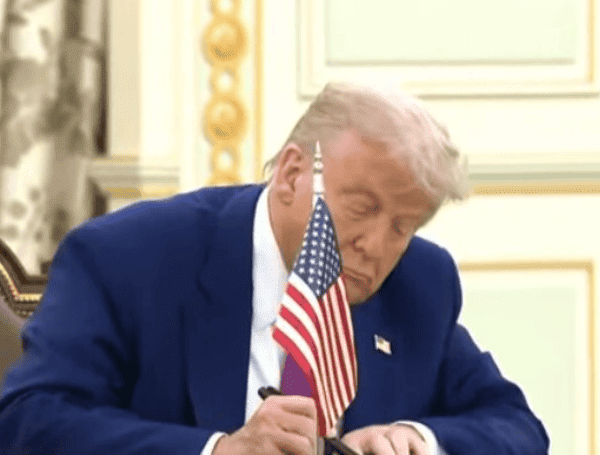






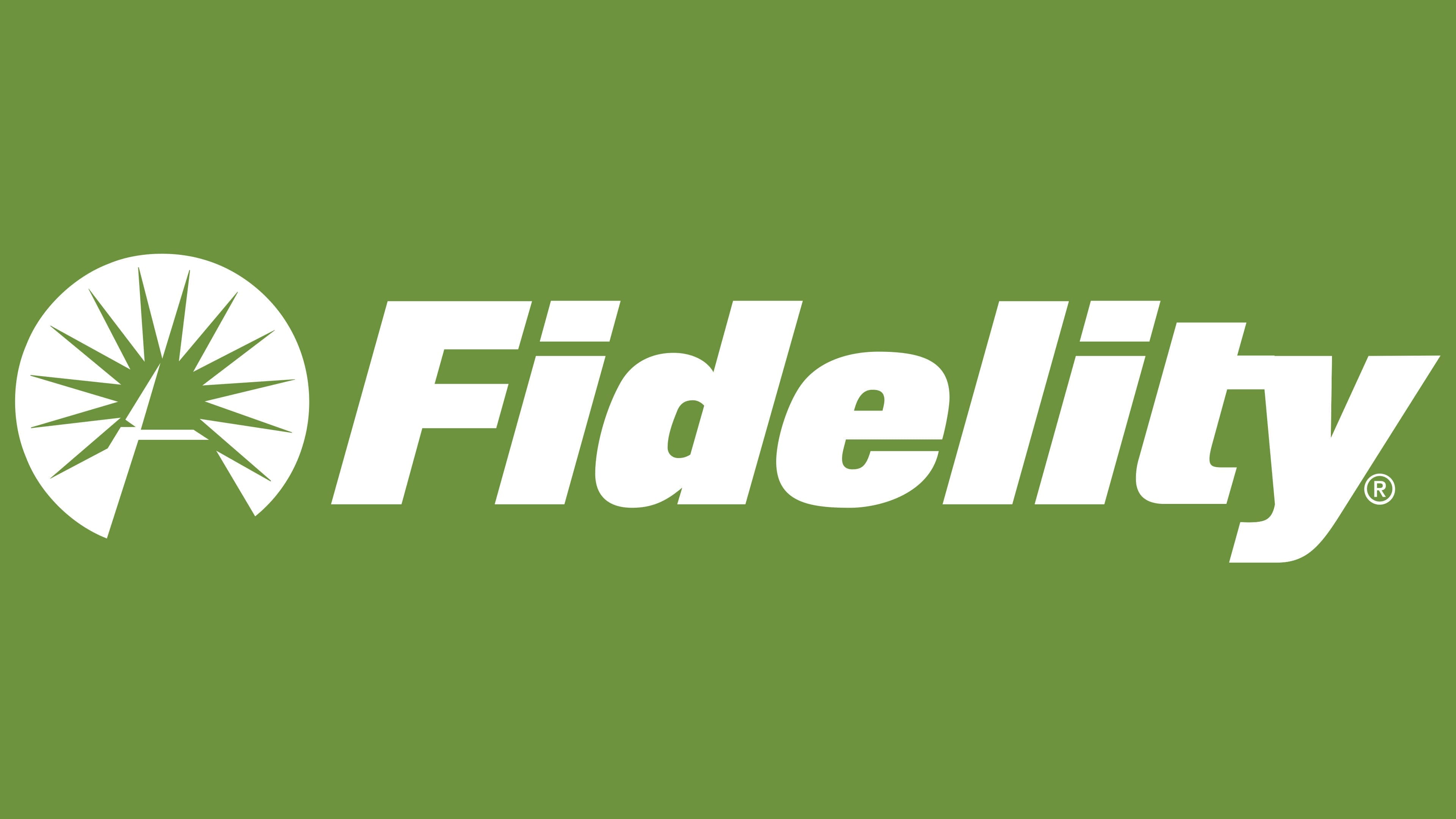


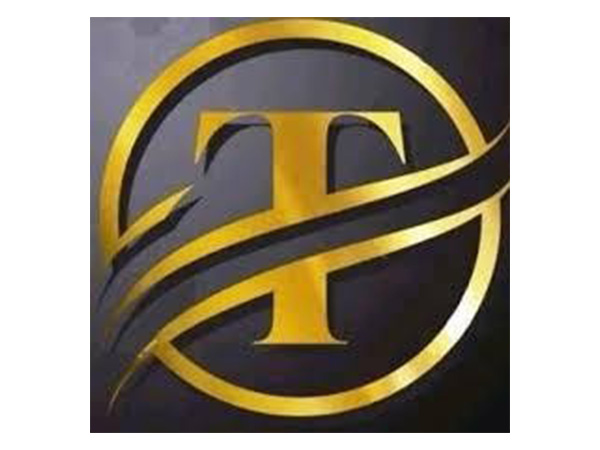

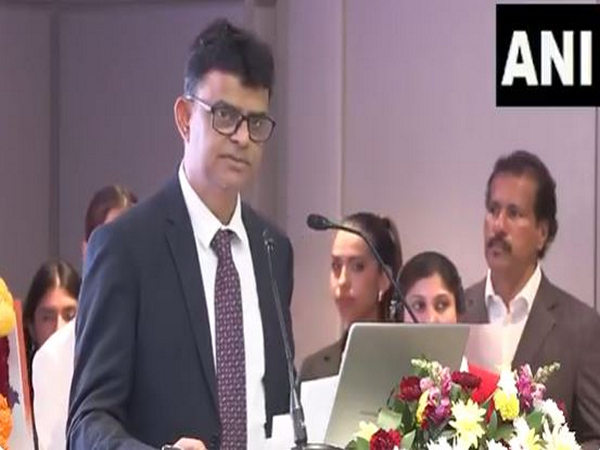

 Zimbabwe has cautioned Chinese investors against ignoring local labor and environmental regulations, as well as engaging in illegal financial practices, a rare position following prolonged public grievances.
Zimbabwe has cautioned Chinese investors against ignoring local labor and environmental regulations, as well as engaging in illegal financial practices, a rare position following prolonged public grievances.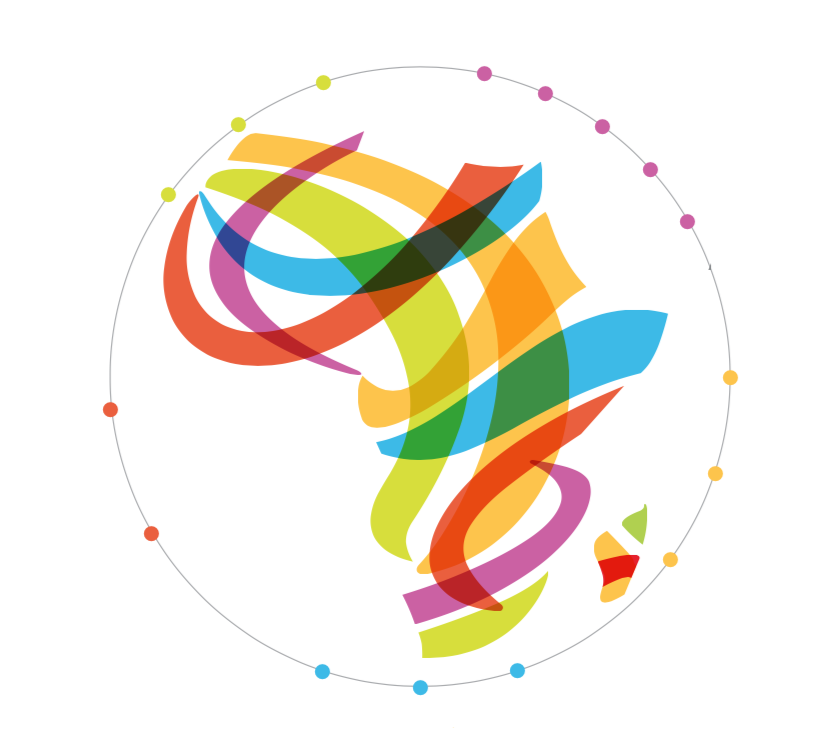 Dar es Salaam. The East African Community (EAC) has taken over the rotating chairmanship of the COMESA-EAC-SADC Tripartite Task Force (TTF) at a crucial time, reigniting hopes for a more unified and integrated regional trade system. However, a central question remains: can this leadership role help the EAC overcome its internal challenges and lead to a genuinely tariff-free region? The TTF unites three major Regional Economic Communities (RECs): the Common Market for Eastern and Southern Africa (COMESA), the East African Community (EAC), and the Southern African Development Community (SADC). It was created to coordinate the implementation of the Tripartite Free Trade Area (TFTA). Launched in 2015, the TFTA aims to promote market integration, industrial growth, and infrastructure development across 29 African countries, serving a population of over 700 million. Yet, almost a decade later, progress has been slower than anticipated due to ongoing non-tariff barriers, delayed ratifications, and a lack of unified customs systems among member states. On July 25, 2024, the TFTA Agreement officially came into effect after securing the necessary 14 ratifications. However, the real challenge lies in putting the agreement into practice, a task now entrusted to the EAC as it assumes the TTF's leadership. EAC Secretary General, Ms Veronica Nduva, speaking at a high-level roundtable in Malabo, Equatorial Guinea, on July 14, 2025, advocated for a continent-wide resource mobilisation strategy to replace fragmented efforts that have hindered progress. "We must abandon disjointed approaches. Africa needs a harmonised strategy for resource mobilisation to effectively implement Agenda 2063," she stated. "We see the TFTA as a strategic tool to deepen integration, boost competitiveness, unlock intra-African trade, and advance inclusive industrialisation," she added. Ms Nduva also highlighted the importance of blended financing models involving public, private, and philanthropic capital, along with the use of technology to enhance coordination and accountability. The big question While the EAC’s assumption of leadership is diplomatically significant, the bloc has faced difficulties in implementing its integration protocols. Several EAC Partner States have previously failed to uphold agreed tariff removals, leading to internal trade disputes and delays in harmonisation efforts. Trade tensions between Kenya and Tanzania over products such as sugar, maize, and milk have revealed the inconsistent application of EAC trade rules, undermining the bloc’s credibility in broader integration efforts. According to Dr Paul Omollo, a regional trade policy analyst based in Dar es Salaam, the EAC must first address its shortcomings. "The EAC has made impressive commitments on paper. But implementation remains its biggest weakness," Dr Omollo told The Citizen by phone. "Taking over TTF leadership is significant, but the EAC must back that up with real reforms at home. It must demonstrate that regional integration can work, starting with its borders." What does chairing the TTF mean? Assuming the TTF chairmanship places the EAC in charge of guiding the finalisation of tariff offers, adoption of rules of origin, and encouraging ratification by the remaining states. The bloc is also expected to lead the revival of the TFTA’s industrial development pillar, one of its key components. "Our focus is to ensure that the TFTA becomes fully operational, not just in name but in action," said Ms Nduva. "We are pushing for the ratification of both the trade and movement of businesspeople agreements," she said. Experts believe this leadership position could allow the EAC to influence harmonised customs policies, coordinated infrastructure investments, and the development of joint industrial zones, provided there is strong political will among member states. "The TFTA could be a game-changer if it builds synergies across the three RECs," said a policy adviser at TradeMark Africa, Mr Humphrey Ramela. "The EAC’s leadership is timely. But success depends on aligning national interests with regional ambitions," he added. Another key theme from the Malabo roundtable was financial independence, with Ms Nduva reiterating the need for African nations to reduce reliance on external donors and adopt African-led financing models. "Austerity must go hand-in-hand with innovation. Resources allocated for development must be managed with discipline and efficiency," she noted. The African Union Commission Chairperson, Mahmoud Ali Youssouf, echoed this sentiment, urging member states to finance their development agendas and adopt the instruments required to operationalise the TFTA by the time of the next Tripartite Council of Ministers meeting. "African ownership is not optional; it is the only path to sustainable development," said Mr Youssouf. With preparations for the fourth Tripartite Summit underway, during which the TFTA will be formally launched, expectations are high. The EAC’s challenge will be to not only champion regional integration at the tripartite level but also prove its commitment to seamless trade within its borders.
Dar es Salaam. The East African Community (EAC) has taken over the rotating chairmanship of the COMESA-EAC-SADC Tripartite Task Force (TTF) at a crucial time, reigniting hopes for a more unified and integrated regional trade system. However, a central question remains: can this leadership role help the EAC overcome its internal challenges and lead to a genuinely tariff-free region? The TTF unites three major Regional Economic Communities (RECs): the Common Market for Eastern and Southern Africa (COMESA), the East African Community (EAC), and the Southern African Development Community (SADC). It was created to coordinate the implementation of the Tripartite Free Trade Area (TFTA). Launched in 2015, the TFTA aims to promote market integration, industrial growth, and infrastructure development across 29 African countries, serving a population of over 700 million. Yet, almost a decade later, progress has been slower than anticipated due to ongoing non-tariff barriers, delayed ratifications, and a lack of unified customs systems among member states. On July 25, 2024, the TFTA Agreement officially came into effect after securing the necessary 14 ratifications. However, the real challenge lies in putting the agreement into practice, a task now entrusted to the EAC as it assumes the TTF's leadership. EAC Secretary General, Ms Veronica Nduva, speaking at a high-level roundtable in Malabo, Equatorial Guinea, on July 14, 2025, advocated for a continent-wide resource mobilisation strategy to replace fragmented efforts that have hindered progress. "We must abandon disjointed approaches. Africa needs a harmonised strategy for resource mobilisation to effectively implement Agenda 2063," she stated. "We see the TFTA as a strategic tool to deepen integration, boost competitiveness, unlock intra-African trade, and advance inclusive industrialisation," she added. Ms Nduva also highlighted the importance of blended financing models involving public, private, and philanthropic capital, along with the use of technology to enhance coordination and accountability. The big question While the EAC’s assumption of leadership is diplomatically significant, the bloc has faced difficulties in implementing its integration protocols. Several EAC Partner States have previously failed to uphold agreed tariff removals, leading to internal trade disputes and delays in harmonisation efforts. Trade tensions between Kenya and Tanzania over products such as sugar, maize, and milk have revealed the inconsistent application of EAC trade rules, undermining the bloc’s credibility in broader integration efforts. According to Dr Paul Omollo, a regional trade policy analyst based in Dar es Salaam, the EAC must first address its shortcomings. "The EAC has made impressive commitments on paper. But implementation remains its biggest weakness," Dr Omollo told The Citizen by phone. "Taking over TTF leadership is significant, but the EAC must back that up with real reforms at home. It must demonstrate that regional integration can work, starting with its borders." What does chairing the TTF mean? Assuming the TTF chairmanship places the EAC in charge of guiding the finalisation of tariff offers, adoption of rules of origin, and encouraging ratification by the remaining states. The bloc is also expected to lead the revival of the TFTA’s industrial development pillar, one of its key components. "Our focus is to ensure that the TFTA becomes fully operational, not just in name but in action," said Ms Nduva. "We are pushing for the ratification of both the trade and movement of businesspeople agreements," she said. Experts believe this leadership position could allow the EAC to influence harmonised customs policies, coordinated infrastructure investments, and the development of joint industrial zones, provided there is strong political will among member states. "The TFTA could be a game-changer if it builds synergies across the three RECs," said a policy adviser at TradeMark Africa, Mr Humphrey Ramela. "The EAC’s leadership is timely. But success depends on aligning national interests with regional ambitions," he added. Another key theme from the Malabo roundtable was financial independence, with Ms Nduva reiterating the need for African nations to reduce reliance on external donors and adopt African-led financing models. "Austerity must go hand-in-hand with innovation. Resources allocated for development must be managed with discipline and efficiency," she noted. The African Union Commission Chairperson, Mahmoud Ali Youssouf, echoed this sentiment, urging member states to finance their development agendas and adopt the instruments required to operationalise the TFTA by the time of the next Tripartite Council of Ministers meeting. "African ownership is not optional; it is the only path to sustainable development," said Mr Youssouf. With preparations for the fourth Tripartite Summit underway, during which the TFTA will be formally launched, expectations are high. The EAC’s challenge will be to not only champion regional integration at the tripartite level but also prove its commitment to seamless trade within its borders.



